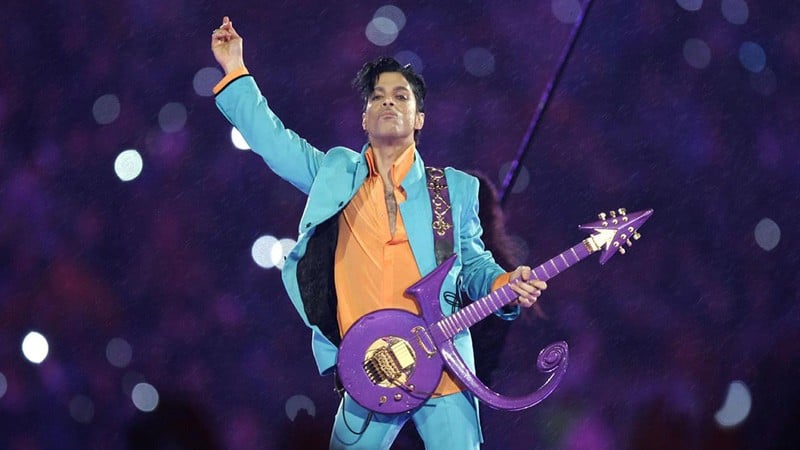
He defied stereotypes, and blazed a trail that no musician alive seems able to emulate

Growing up in Pakistan in the 1980s and ’90s, one could detect various cultural anomalies in the air. Gender segregation was the norm, and female characters on tv still wore dupattas that signified the Zia-era regression of a pluralistic society. However, simultaneously, unconventional pop acts like jeans-clad Nazia Hassan and the clean-shaven young boys who made up Vital Signs also broke into our homes. Some of us with access to Western media were also familiar with Michael Jackson and Madonna.
Then, of course, there was Prince.
Clichéd as it may be to repeat, it is however true that with the death of pop music legend Prince on April 21, an era of revolutionary evolution in music has come to an end.
Prince was a member of a very select club of artistes whose influence reached beyond cultural and geographical boundaries. Elvis Presley, Freddie Mercury, David Bowie and Michael Jackson were the others, and all of them have already passed on to whatever version of heaven they believed in. Now Prince has joined them.
Such is the exclusivity of this club that Madonna, the greatest stage artiste alive, does not join this select company. Lady Gaga might someday become a part of this club, but there is a long way to go for her yet.
These were musicians who owned the stage like nobody else, who influenced popular culture, whose life choices became synonymous with fashion, and who spent their lives being controversy’s pet children.
Even within this radically precocious group of artistes, Prince was in many ways a leader of men unlike the others. The androgynous veneer belied a brave revolutionary who subverted popular culture and created fashion statements that polarised his audience.
Prince’s great contemporary, and a man he was constantly compared with, was Michael Jackson (MJ). In many ways, their styles were similar. Both were flamboyant, did not care for popular fashions, and both charted their own ways in the world. In many other aspects, MJ was a more iconic star. He made dance an integral part of his performance; he deliberately courted controversy to ensure that his popularity remained at the zenith that he had achieved; his music was far more accessible to the masses. Prince, however, was truly subversive. His reliance on a falsetto was far more pronounced than anyone else in recent memory.
This did not mean that he was trying to hide behind a false voice - an accusation that feeds on our presumption that assumed identities necessarily mean that there is something to hide. Prince was not just reclusive; he was resolutely private. While other artistes remained in the spotlight, Prince was known to discourage people from taking pictures or making videos at his concerts.
In Prince’s case, the falsetto complements the music. With MJ, one could be excused for not paying attention to lyrics because the breathtaking choreography often overshadowed the song itself, especially in concert. Prince, however, though his stage presence was tremendous, made sure that the poetry spoke through. And what songs they were!
From the tantalising ‘Kiss’ to the almost tear-inducing ‘Purple Rain’, the ambivalent ‘When You Were Mine’ to the sultry ‘When Doves Cry’, Prince’s lyrics always triumphed. His stylist recently remarked that his songs were either prayer or foreplay. That is a profound analysis because Prince did indeed use his music as a powerful tool for blurring the relationship between the individual and the state and its dominant ideologies. He wrote for other artistes as well, and delivered hits that reverberate across generations. His first manager claims that there is a treasure trove of unreleased music.
If that is true, his legacy will be hard to match.
A 2015 song titled ‘Baltimore’ most closely reflects why this genius remains a true revolutionary ideal. He performed this song at the Baltimore protests where he stood with the demonstrators, owning his African American heritage, and asking the very politically charged question ‘Does anybody hear us pray for Michael Brown and Freddie Gray’, the two Black young men killed by police. This was the kind of revolutionary music that before him, only the band Queen had been able to create with any consistency.
This ownership of his ancestry was another subversive trait in Prince that made him all the more special to me. While MJ was undergoing multiple plastic surgeries that transformed him from a fairly attractive young Black man to a rather unseemly White one, Prince did not mind the colour of his skin. He was comfortable being who he was. Questions about whether he was trans-gendered were raised, but he did not bother answering them.
Perhaps, this pluralistic approach to life had something to do with his ability to play multiple instruments with equal panache.
As a fashion icon, Prince changed his look many times. His hairstyle underwent various transformations. His name was changed on many occasions. What remained a constant, though, was the urge to rebel and stand out. He pioneered the use of technology in music. He fought a career-long battle against music labels that tried controlling his creativity. He defied stereotypes, and blazed a trail that no musician alive seems able to emulate. He was not just a subversive revolutionary. Prince was an iconoclast.